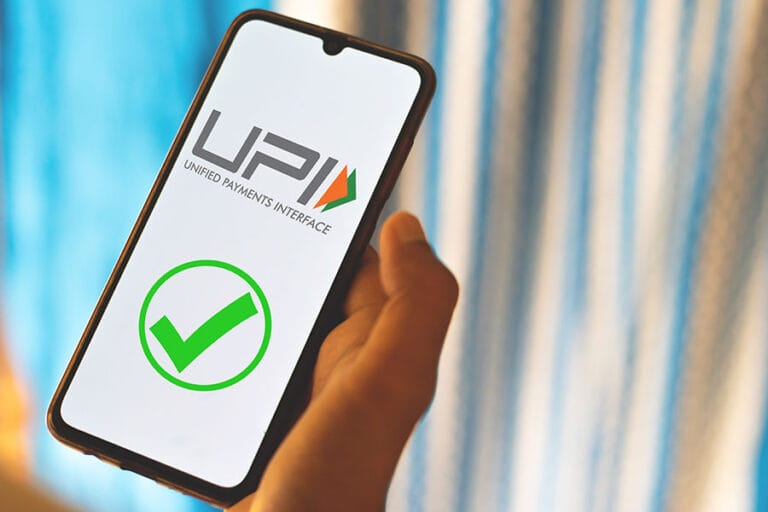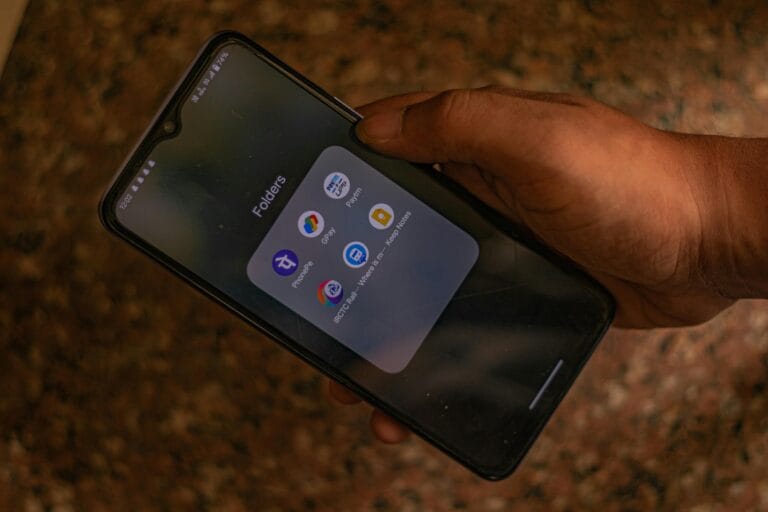Difference Between NEFT, RTGS, IMPS & UPI – Which One You Should Use?
In today’s digital world, online payments are common. With many options, picking the right one can be hard.
We often find ourselves wondering which to choose: NEFT, RTGS, IMPS, or UPI. Each has its own benefits.
This article will help you understand the differences. You’ll know which is best for your money moves.
Key Takeaways
- Understand the differences between NEFT, RTGS, IMPS, and UPI.
- Learn the benefits and features of each payment method.
- Discover the most suitable payment method for your transactions.
- Make informed decisions about your financial transactions.
- Choose the best payment method for your needs.
Understanding NEFT: National Electronic Funds Transfer
NEFT, or National Electronic Funds Transfer, is a key part of digital transactions. It’s a way to send money online. NEFT settles transactions in batches throughout the day.
What is NEFT?
NEFT lets people and businesses send money online from one bank account to another. It’s used for many things, like paying bills and transferring funds. NEFT transactions are processed in batches, which means there’s a delay before they’re settled.
How NEFT Works
The NEFT process starts when the sender gives the recipient’s bank details and the amount to send. The sender’s bank then sends the request to the NEFT clearing center. There, it’s processed in batches. After that, the money goes to the recipient’s account. This process usually takes a few hours, depending on when the batch is processed.
Timing and Limits
NEFT transactions are done in batches all day. The batch timing affects how long it takes for the transaction to settle. Also, there are limits on how much you can send via NEFT, which change by bank. Here’s a look at NEFT limits and timing:
Bank | NEFT Transaction Limit | Processing Time |
Bank of India | Up to ₹2 lakhs | Within 2-3 hours |
State Bank of India | Up to ₹5 lakhs | Within 2 hours |
HDFC Bank | Up to ₹1 lakh (varies for different account types) | Within 1-2 hours |
It’s important to check with your bank for their specific NEFT limits and times. This helps plan your transactions better.
Exploring RTGS: Real-Time Gross Settlement
RTGS is key for fast, big money moves. It’s a system for quick, big money moves. It’s vital for urgent and big deals.
What is RTGS?
RTGS moves money fast from one bank to another. It’s for urgent, big deals. It settles each transaction right away, so money is in hands fast.
Benefits of Using RTGS
RTGS is great for fast money moves. It’s perfect for big deals or when you need money now. The main perks are:
- Real-time settlement: Money moves right away, cutting down on payment delays.
- High-value transactions: It’s best for big money moves, great for big businesses and personal big deals.
- Irrevocability: Once done, it can’t be undone, keeping money safe for the receiver.
When to Use RTGS
Use RTGS for big, urgent money moves. This includes:
Scenario | Description |
High-value transactions | Big money deals where speed is key. |
Urgent payments | Quick payments for emergencies or tight deadlines. |
Business transactions | Big financial moves for businesses need fast settlement. |
Knowing when to use RTGS helps make smart payment choices. It ensures the right method is picked for each situation.
IMPS: Immediate Payment Service Explained
IMPS, or Immediate Payment Service, has changed how we send money. It’s fast and easy to use. Let’s dive into what makes IMPS important in today’s digital world.
What is IMPS?
IMPS lets you send money instantly between bank accounts. It works all day, every day, including weekends and holidays. This makes it a top choice for urgent money transfers.
When you use IMPS, the money goes straight to the other person’s account. This means the transaction happens right away.
Key Features of IMPS
IMPS is known for being instant and available 24/7. It’s perfect for sending money at any time. Plus, it works with both bank accounts and mobile wallets.
- Instant fund transfer
- Available 24/7, including holidays
- Supports bank account and mobile wallet transactions
Advantages of IMPS
Using IMPS has many benefits. First, it’s immediate, so transactions happen fast. Second, it’s convenient because you can use it through apps and online banking. Lastly, IMPS is secure, keeping your information safe.
Learning about IMPS helps you choose the best way to pay. It’s great for both personal and business needs. IMPS is a reliable and quick way to send money.
UPI: Unified Payments Interface Demystified
UPI is a big change in digital payments, making transactions easier. It’s important to know what makes UPI special when comparing it to other payment systems.
What is UPI?
UPI is a fast payment system for mobile devices. It uses the banking system, letting you link many accounts to one app. This makes paying easier, as you don’t need to remember lots of details or worry about when to pay.
UPI is easy to use. You pay with a virtual payment address (VPA), a unique link to your account. This keeps your account info safe, making payments more secure.
How UPI Works
Using UPI is simple. First, download a UPI app from your bank or a payment service. Then, register with your account info and create a VPA.
After registering, you can send money by entering the recipient’s VPA and the amount. You also need a UPI PIN for security, ensuring only you can make payments.
UPI Features and Benefits
UPI has many features that make it great for digital payments. Some key benefits are:
- Instant Transactions: UPI lets you send money right away.
- 24/7 Availability: You can use UPI anytime, day or night.
- Simplified Transactions: UPI’s VPA makes paying easy, without remembering lots of info.
- Enhanced Security: UPI’s PIN keeps your payments safe from unauthorized access.
Looking at NEFT, RTGS, IMPS, and UPI, UPI stands out. It’s fast, easy, and secure, making it a top choice for many.
Read Also :- UPI Fraud in India: 7 Latest Scams & How to Stay Safe
Key Differences Between NEFT, RTGS, IMPS, & UPI
In India, knowing the differences between NEFT, RTGS, IMPS, and UPI is important. Each has its own features, benefits, and drawbacks. This knowledge helps you make smart financial choices.
Transaction Speed Comparison
The speed of transactions differs a lot among these methods. Here’s a quick look:
- NEFT: Transactions are processed in batches, taking a few hours to settle.
- RTGS: It’s for real-time transfers, perfect for urgent, high-value transactions.
- IMPS: Allows instant fund transfers, available 24/7, even on weekends and holidays.
- UPI: Enables quick transactions, letting users send money instantly between accounts using a virtual address.
Fees Associated with Each Service
Fees for these services can change based on the provider and the amount you’re sending. Here’s a general idea:
Service | Transaction Fees |
NEFT | Minimal fees, often free for certain account holders |
RTGS | Higher fees compared to NEFT, due to the real-time settlement |
IMPS | Charges are applicable, with variations based on the transaction amount |
UPI | Mostly free, with some banks and service providers charging minimal fees for certain transactions |
Transaction Limits and Conditions
Each method has its own limits and rules:
- NEFT: Has a lower limit, best for smaller transactions.
- RTGS: Suitable for large transactions due to its higher limit.
- IMPS: Offers a good limit for instant transfers.
- UPI: Limits vary by bank and user verification level.
Knowing these differences helps you pick the best payment method for you. It’s about the speed, fees, and limits. Each method has its own advantages.
Choosing the Right Payment Method
There are many digital payment methods to choose from. In India, NEFT, RTGS, IMPS, and UPI have changed how we pay. Each has its own benefits and meets different needs.
Factors to Consider When Choosing
When picking a payment method, several things matter. Transaction speed is key, as it shows how fast money gets to the other person. IMPS and UPI are fast, perfect for urgent needs.
Fees for each service also matter. NEFT and RTGS might cost more than IMPS and UPI. Knowing these costs helps pick the cheapest option. Also, transaction limits and rules can affect your choice, mainly for big payments.
Scenarios for Each Payment Method
Each method fits different situations. RTGS is for big, urgent payments like buying property. NEFT works for many kinds of payments, big or small, but not so urgent.
IMPS is good for all kinds of payments, big or small. UPI is great for daily needs like bills and person-to-person payments because it’s easy and works with many banks.
User Preferences and Trends
What people like affects which payment methods they use. UPI is popular for its convenience and security. Trends show a move towards quicker payments, with IMPS and UPI leading.
Knowing these trends helps us pick the best payment method. By looking at what NEFT, RTGS, IMPS, and UPI offer, we can improve our digital payment experience
Security Measures in Digital Transactions
Digital transactions are becoming more common, making security more important than ever. We need to know how NEFT, RTGS, IMPS, and UPI keep our money safe.
Security Features of Each Payment Method
Each payment method has its own security features. NEFT and RTGS use encryption and have many checks. IMPS uses encryption and 2FA for extra security. UPI uses a UPI PIN and some apps offer biometric authentication.
Importance of Secure Transactions
Secure transactions are key to avoid financial loss and protect our data. A single security breach can cause big financial and reputation problems. So, it’s important for everyone to know and use strong security measures.
Payment Method | Security Features |
NEFT | Encryption, Multiple Checkpoints |
RTGS | Encryption, Validation Checks |
IMPS | Encryption, 2FA |
UPI | UPI PIN, Biometric Authentication |
Tips for Staying Safe Online
To stay safe online, follow some key tips. Always use a secure internet connection and never share your PINs or passwords. Keep your apps and devices updated with the latest security patches. Use strong, unique passwords and enable 2FA whenever you can.
Knowing these security tips helps us use digital payments like NEFT, RTGS, IMPS, and UPI safely. We can trust that our transactions are secure.
Future of Online Payments in India
India’s online payment system is changing fast. New tech and trends are coming in. It’s key to know what’s driving these changes.
Emerging Trends in Digital Payment Solutions
India’s digital payments are seeing big changes. Blockchain is making payments safer and clearer. Artificial Intelligence (AI) is helping spot fraud and improve service. Smartphones are making payments easier.
UPI is growing fast. It’s easy to use and settles payments quickly. It’s becoming a top choice for many. NEFT, RTGS, and IMPS are also joining UPI, making payments more accessible.
The Role of Technology in Future Payments
Technology is key to online payments’ growth. Digital wallets, contactless payments, and biometric authentication are making payments better and safer. Machine learning algorithms are helping fight fraud.
Cloud computing is making payment systems more reliable. As tech advances, we’ll see even more new payment solutions.
Predictions for the Payment Landscape
The future of online payments in India looks bright. We expect more people to use digital payment methods. This is because they’re becoming more trusted and convenient.
The comparison between NEFT, RTGS, IMPS, and UPI will keep changing. Each service will offer unique features for different needs. As the system grows, we’ll see more tailored payments and better security.
In conclusion, the future of online payments in India is promising. Technology is at the heart of this growth. It will be exciting to see how these trends and innovations change how we pay.
Conclusion: The Best Payment Option for You
It’s important to know the differences between NEFT, RTGS, IMPS, and UPI to pick the right payment method. This guide has shown us each service’s unique features, benefits, and limits.
Key Takeaways from Each Payment Method
NEFT is good for batch transactions and is used for smaller amounts. RTGS is best for big transactions that need quick settlement. IMPS lets you send money instantly, any time of day. UPI makes transactions easy by linking many accounts to one mobile number.
Personalized Recommendations
Think about the amount, speed, and ease when choosing a payment method. For big, fast transactions, RTGS or IMPS might be best. For daily needs, UPI or NEFT could work better. Knowing your needs helps you make smart choices for your money.
By looking at what NEFT, RTGS, IMPS, and UPI offer, you can pick the best way to pay. This ensures you get the most out of digital payments in India.
FAQ
Q.1 What is the main difference between NEFT, RTGS, IMPS, and UPI?
The main difference is in how fast they process transactions. NEFT is slower, RTGS is fast, IMPS is immediate, and UPI is instant.
Q.2 Which payment method is best for high-value transactions?
RTGS is best for big transactions. It settles funds right away.
Q.3 Are there any fees associated with these payment methods?
Yes, each method has its own fees. Fees depend on the bank, amount, and service type. NEFT and IMPS are usually cheaper, while RTGS is pricier.
Q.4 Can I use UPI for international transactions?
Right now, UPI is for domestic use. But, it might soon allow international transactions.
Q.5 How secure are these digital payment methods?
They’re very secure. They use encryption, two-factor auth, and SSL certificates. You can trust them for safe transactions.
Q.6 Can I use IMPS or UPI for transactions outside banking hours?
Yes, IMPS and UPI work 24/7. They’re great for making payments outside regular bank hours.
Q.7 What are the transaction limits for NEFT, RTGS, IMPS, and UPI?
Limits vary by bank and method. RTGS has the highest limits. NEFT, IMPS, and UPI limits depend on the bank and account type.
Q.8 How do I choose the best payment method for my needs?
Think about speed, fees, and what you prefer. We can guide you based on each method’s features and benefits.
Did You Find This Helpful?
If you liked this post or found it useful, please share it with your friends and family.
Your one share can help someone save money and make better financial decisions!








